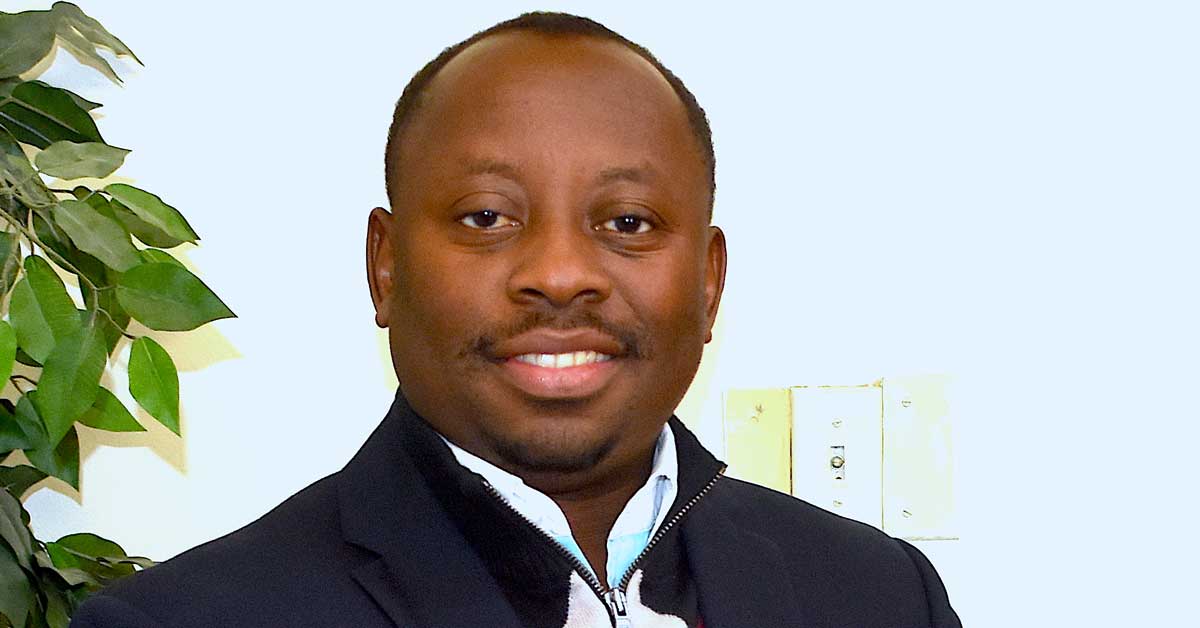Rwandan Refugee Expands Immigrant-Focused Newspaper into Buffalo-Based Non-Profit
Date: August 25, 2018

Shortly after Rwandan refugee Rubens Mukunzi began publishing a newspaper about immigrant and refugee life, he got a visit from the Buffalo Public Schools Superintendent Kriner Cash. “He was very excited to have the newspaper, Karibu News, as a voice for refugees and immigrants in Buffalo Public Schools,” says Mukunzi.
Karibu News, which is published in seven languages, was subsequently used as a teaching tool in the schools, with about six students publishing pieces in each issue.
It was a watershed moment for Mukunzi, who had initially felt lonely and isolated after he arrived in Buffalo in 2013. But a little more than a year later, he heard Buffalo Mayor Byron Brown tell refugees that the city wanted to welcome and assist them. After the visit from Cash, he realized just how committed public officials were to making new Americans feel at home.
Mukunzi’s experience jibes with findings in New American Economy’s new Cities Index report, which rates the American cities most welcoming to immigrants. Buffalo is particularly strong in the area of Government Leadership.
Buffalo leaders understand that new Americans like Mukunzi play a key role in stemming the population decline that has slowed the city’s economic growth for decades. Between 2000 and 2014, the foreign-born population grew by a robust 32.3 percent, a growth that was able to reduce the city’s overall population decline. Like Mukunzi, many of these newcomers are creating their own jobs. In 2014, 9.1 percent of the foreign-born in Buffalo were self-employed, compared with 6.5 percent of U.S.-born residents. It’s a dynamism that helps all residents. Self-employed immigrants generated $121 million in business income and helped create or preserve 3,116 local manufacturing jobs.
Currently, Mukunzi is in the process of transforming Karibu News into a non-profit entity, African-American Baobab, Inc., which will provide ongoing assistance to immigrants and refugees in addition to the twice-monthly publication. Under the new structure, he will continue employing his four full-time staff members and 10 freelance contributors, in addition to mentoring a large number of interns and students. In July 2018, he also began the paperwork to start a cleaning company—after working for another service for four years. He expects to employ three or four people during the start-up period.
I never thought that people in this country would help like that… They are good people, very good people.”
Mukunzi’s transition from cleaning-service employee to entrepreneur was inspired in part by some very good news–after a five-year separation, his seven-year-old son was permitted to leave Rwanda and join him in 2018. After Mukunzi brought his son home, he was delighted by the support he received from U.S.-born friends and neighbors—who came to the house with gifts, took the boy on fun outings, and helped with school placement. “It was very emotional for me. I never thought that people in this country would help like that. It was very exciting seeing my neighbors bring gifts for my son. They are good people, very good people.”
